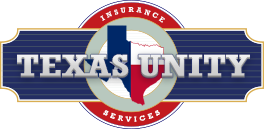- Personal
- Bodily Injury Liability
- Carpooling
- What if I lease a car?
- Medical payments (PIP)
- Property damage liability
- Rental Car
- Uninsured & Underinsured Motorist
- International Coverage
- Trailers
- Motorcycle
- Recreational Vehicles
- Watercraft
- Liability
- Personal Belongings
- Special Property
- The Structure Of Your House
- Slips
- Child Away In College
- Flood
- Business
- Payments
- Claims
- Insurance Tid Bits
- Contact
Carpooling
Environmental concerns, traffic congestion, convenience, desire to relieve driver stress, poor public transportation, lack or expense of parking are all factors that contribute to commuters forming driver groups or carpools. Parents use such arrangements to transport children to school, sports events, and extracurricular activities. It is also common for a student owning a car to carry classmates back and forth between home and school.
Regardless of the name, driver groups, share-the-ride arrangements, or carpools are a permanent part of the American scene. Typically, several drivers take turns assuming the responsibility for driving their companions. It’s common for the turns to last a week and may be switched on a rotating basis. These people frequently live in the same area and work in the same office or plant. They may take turns driving or may regularly ride in one car and pay the owner a reasonable fee for gasoline, maintenance, and wear and tear.
The practice of a parent taking a group of children on an outing, to a “Little League” baseball game, and the like is commonplace. Other examples of group driving exposures are plentiful:
– Church group activities
– Book club members driving to their regular meeting or outing
– Coaches taking players to practices or games
– Employees traveling together to league games or practices, etc.
– Liability Insurance Exclusion
Drivers involved in car pools and other group arrangements may wonder if the situation is covered under their auto policy. This concern is valid as many auto policies have restrictions. Typically, liability coverage under personal automobile policies does not apply to “liability arising out of the ownership or operation of a vehicle while it is being used as a public or livery conveyance.” (A public conveyance is a vehicle used indiscriminately in transporting the public without being limited to certain persons or occasions. A livery vehicle is one that is offered for rental.) There is slight variation in language among policies issued by various insurers, but the intent is the same: to exclude the use of a personal auto for transporting people or property for income. However, this exclusion does not affect coverage for car pool, driver group, or sharethe- ride arrangements.
You have already learned that many drivers use different ride-sharing arrangements. The typical automobile insurance policy covers these arrangements because the driving exposure is essentially the same. The common policy exclusion that refers to “public or livery conveyances” is to prevent coverage for business situations. Using a car or SUV that is insured by a personal auto policy to transport people or goods for hire is unfair to insurers. The premium a company charges for personal use is inadequate to cover “public or livery conveyances” that are typically:
– Driven more miles
– Exposed to worse (i.e., high density) traffic situations
– Driven under more pressure to meet delivery schedules
– Exposed to poorer driving conditions
In other words, such use calls for more careful underwriting, different or special coverages, and a higher premium. However, group-driving arrangements are another form of personal use such as using a car for commuting, vacations, personal errands, etc. The result is that a “personal” premium compensates an insurer for most pool arrangements.
Are there other coverage considerations?
Yes. Car owners may worry if their insurance is affected if another member of a pool is driving their car. The answer is that any person using the vehicle with the car owner’s permission is covered along with the car owner.
Persons who drive in carpools may want to discuss the details with their insurance agent. An insurance agent may recommend that you carry higher bodily injury liability insurance limits. Higher medical payments limits may also be in order. Providing full details can help an agent make sure that any fees involved in the arrangement represent coverage for the driver’s operating expenses and not additional income. Conclusion
In most instances, using a car in a typical share-the-ride arrangement or carpool will not affect the protection under the personal auto policy. The fact that passengers pay a small amount of money to help cover the expense of automobile operation is unlikely to eliminate their driver’s insurance coverage since the car is not being used as a “public or livery conveyance.” However, any fees received by a driver from car pool passengers should only reflect a reasonable share of the gas and oil expense and depreciation on the car.



